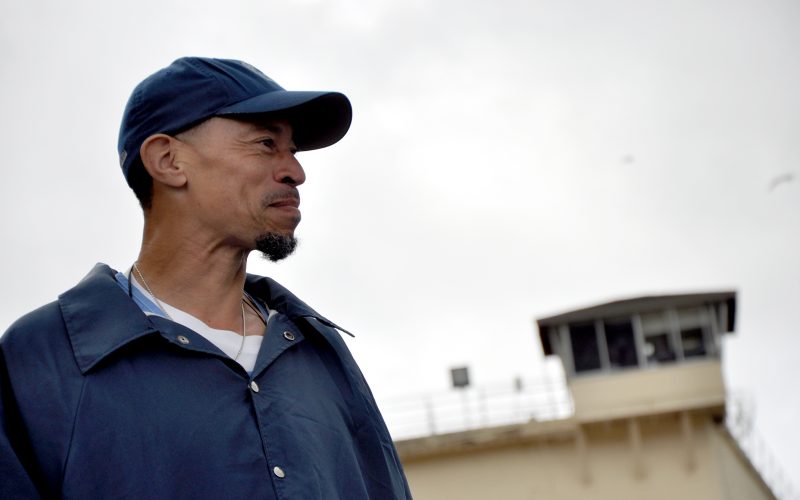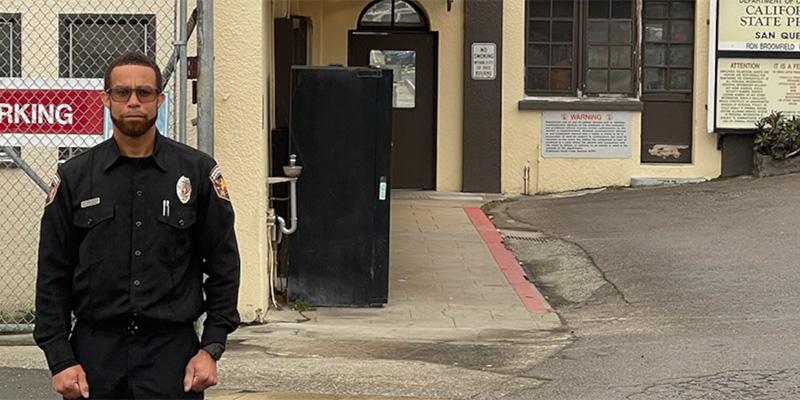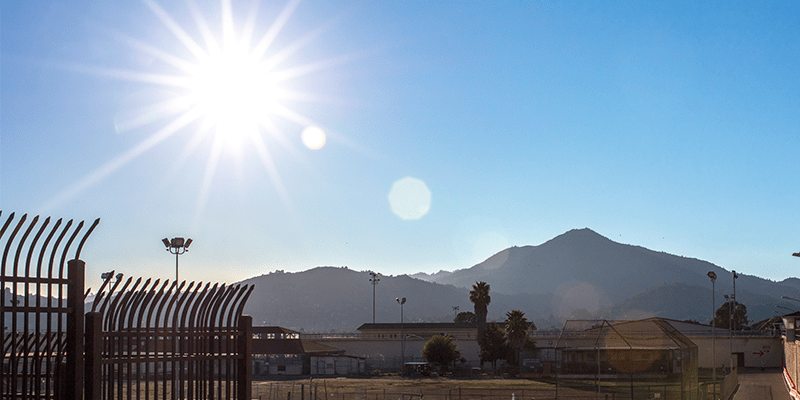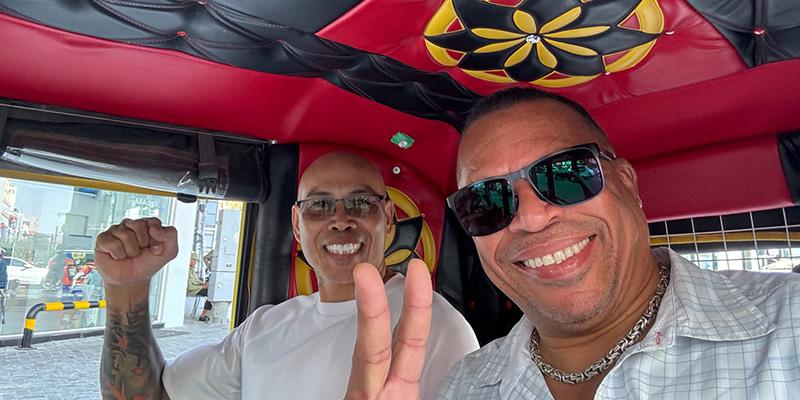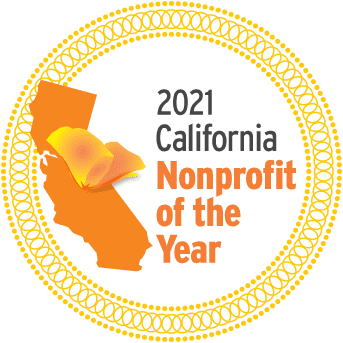I attended a college surrounded by fences “adorned” with barbed wire. In early 2021, at 50 years old, I earned an associate’s degree from Mount Tamalpais College, which is located on the lower yard of San Quentin State Prison. It’s been life changing.
Mount Tamalpais College, which we call Mt. Tam, provides a classroom education on the prison grounds. The teachers are volunteers from other schools including Stanford, San Francisco State University, Harvard, and Berkeley. It has a study hall area where tutors are available five nights a week and a recently opened computer lab with 36 laptops that allow communication with teachers and access to reference materials through a “mediated internet,” according to Kirsten Pickering, research program fellow.
For incarcerated people, the quality or success of a college program is often measured by recidivism rates. By that standard, Mount Tamalpais, formerly the Prison University Project, is a success. Its students had a recidivism rate of 17 percent compared to the 65 percent recidivism rate for the California Department of Corrections and Rehabilitation as a whole, according to a 2011 program evaluation.
Moreover, MTC provides jobs for graduates on parole. I’ve seen Dimitri, a former student, come back into the prison, dressed up in a sharp black suit, as an employee of Mt. Tam. The college recently hired Richard “Bonaru” Richardson, the former editor in chief of San Quentin News. I know of at least three other former incarcerated students that are now Mt. Tam employees.
For those of us serving long sentences, recidivism rates and jobs can’t measure the success of our college education. My pursuit of a degree started in 2016, approximately 16 years into a 55-years-to-life sentence. I would have to live to be 85 years old to evaluate whether an associate’s degree will break the cycle of incarceration that’s circled my adulthood. Proof of the quality of a Mount Tamalpais education has shown itself in several other ways that impacts society and my life.
Incarcerated graduates have a positive influence on their peers and families. I remember attending a graduation where the valedictorian was a man with locks. His siblings attended the event, two sisters and a brother, plus his mother, sat in the front row as he gave a short speech. Afterwards, one of his sisters said, “I’m so proud of my brother. He’s the first to graduate from college in our family. And if he can do that from prison, I can get my degree too.”
The influence of college on peers is also apparent on the yard. In other prisons, the conversations you usually hear about are sports, war stories, or women. At San Quentin, you can walk by and ear hustle (overhear) debates about ethics, politics, or Plato’s Allegory of the Cave.
A 2016 qualitative study featuring interviews with 27 Mt. Tam students showed that the program positively transformed how students think about themselves, others, and their futures. Over 90 percent of respondents reported that college positively affected their self-identity, mental health, and personal relationships. More than two-thirds also said that the program has positively influenced the prison culture at San Quentin, particularly in regards to race relations.
Personally, I see education as the key to my success from behind bars. After getting sentenced to a term beyond my life expectancy I needed a path to redemption in the eyes of my mother, my sons, and society that didn’t involve going home. I came up with becoming a writer because my voice was the one part of me that was still free.
I envisioned writing a memoir that people who grew up in tough neighborhoods like I did would read and drop their guns. The problem with that plan was that I only had a high school education and no creative writing skills. In isolation I wrote for 10 years without training or a mentor. Words stacked up that no one heard.
In 2013, my security level dropped and I was transferred to San Quentin, a progressive lower security prison. Here they have all kinds of programs and I signed up for anything that could make me a better writer, including college, creative writing and the San Quentin News Journalism Guild.
Each program made my writing better and better. I became the sports editor for San Quentin news, and a contributing writer for The Marshall Project and Current. Additionally, the college program offered a communication class that developed my speaking skills. I pursued the oral art to deliver prerecorded speeches over a collect call to reach Stanford, MoMA and to honor James King, the campaign manager for the Ella Baker Center for Human Rights, and California State Senator Nancy Skinner for their work by the nonprofit law firm UnCommon Law. Plus, speaking skills landed me the cohost and co-producer job with the Ear Hustle podcast, which was a 2020 Pulitzer Prize finalist and DuPont award winner.
In a trailer used for a classroom, I learned the history of Black codes, unions, the New Deal and other events that shaped the environment that shaped me. From gaining this worldview, I began to look beyond the people who bullied me growing up and instead began to see the systems that pitted us against each other. My new perspective made it easier to quit taking things personally, forgive others, let go of my anger, and heal.
Additionally, I learned how political systems work and put that knowledge to use. I inspired Taina Angeli Vargas of the nonprofit advocacy group Initiate Justice to fight for the restoration of voting rights for incarcerated people. Our efforts led to Prop 17, an initiative on a 2020 ballot in California which gained the support to restore voting rights to people on parole.
Another thing that made learning from teachers in person a high-quality educational experience was the socialization. Other prisons only offered correspondence courses that pale in comparison to in person learning. Imagine professors from famous universities volunteering to give you a free education. Their dedication made me feel a love and loyalty to society that I never felt before — I can’t be a waste of their time.
I think the biggest mark of success stemming from my college education on a prison yard is the opportunity to go home. On January 13, 2022 California Governor Gavin Newsom commuted my sentence, which grants me a parole board hearing this summer for a chance of getting a release date in early 2023. As a reason for granting mercy, Newsom’s Legal Affairs Office cited “participating in self-help programming and completing college coursework.”
Editor’s Note: Mount Tamalpais College was founded in 1996 as the Prison University Project, and operated as an extension site of Patten University. In January 2020, the program changed its name to Mount Tamalpais College when it became a candidate for accreditation by the Accrediting Commission for Community and Junior Colleges (ACCJC). The college is the first independent liberal arts institution dedicated specifically to serving incarcerated students.
Rahsaan “New York” Thomas is a writer, podcaster, and director. He was a Pulitzer Prize finalist and won the DuPont Award in 2020 for his work as a co-host and co-producer on Season Four of the Ear Hustle podcast. He’s also the chairperson of the San Quentin satellite chapter of the Northern California Society of Professional Journalists and a contributing writer for Current, the Marshall Project, and San Quentin News. All from a cell at San Quentin State Prison.
Attribution: This article originally appeared in Open Campus on January 19, 2022.
